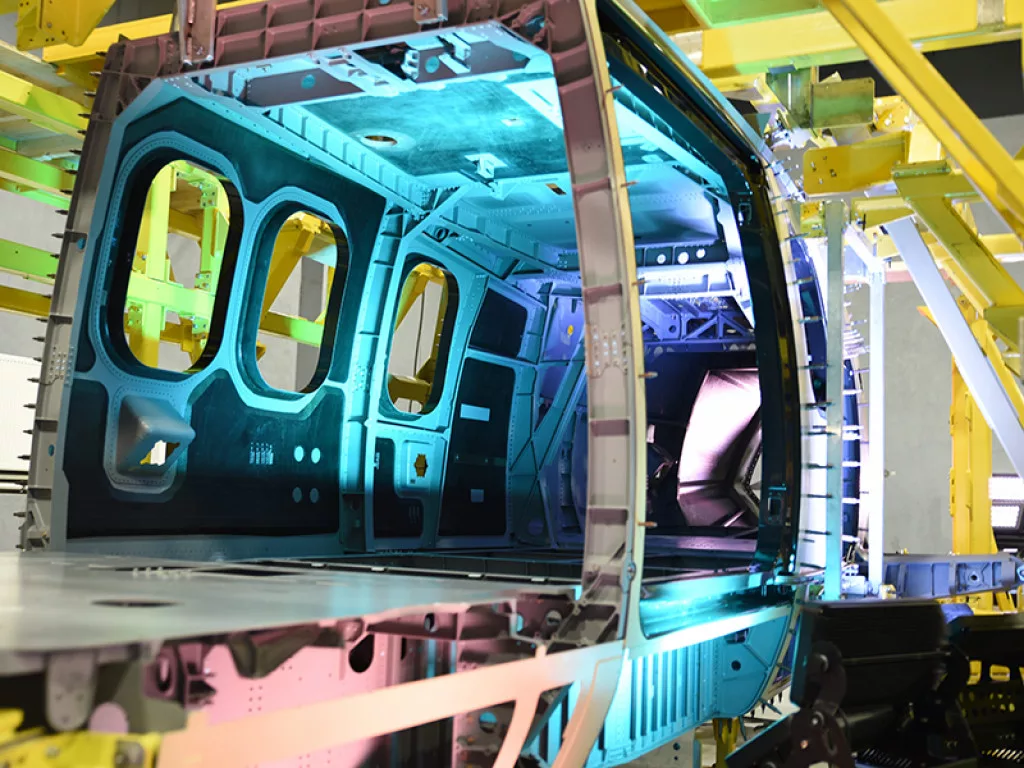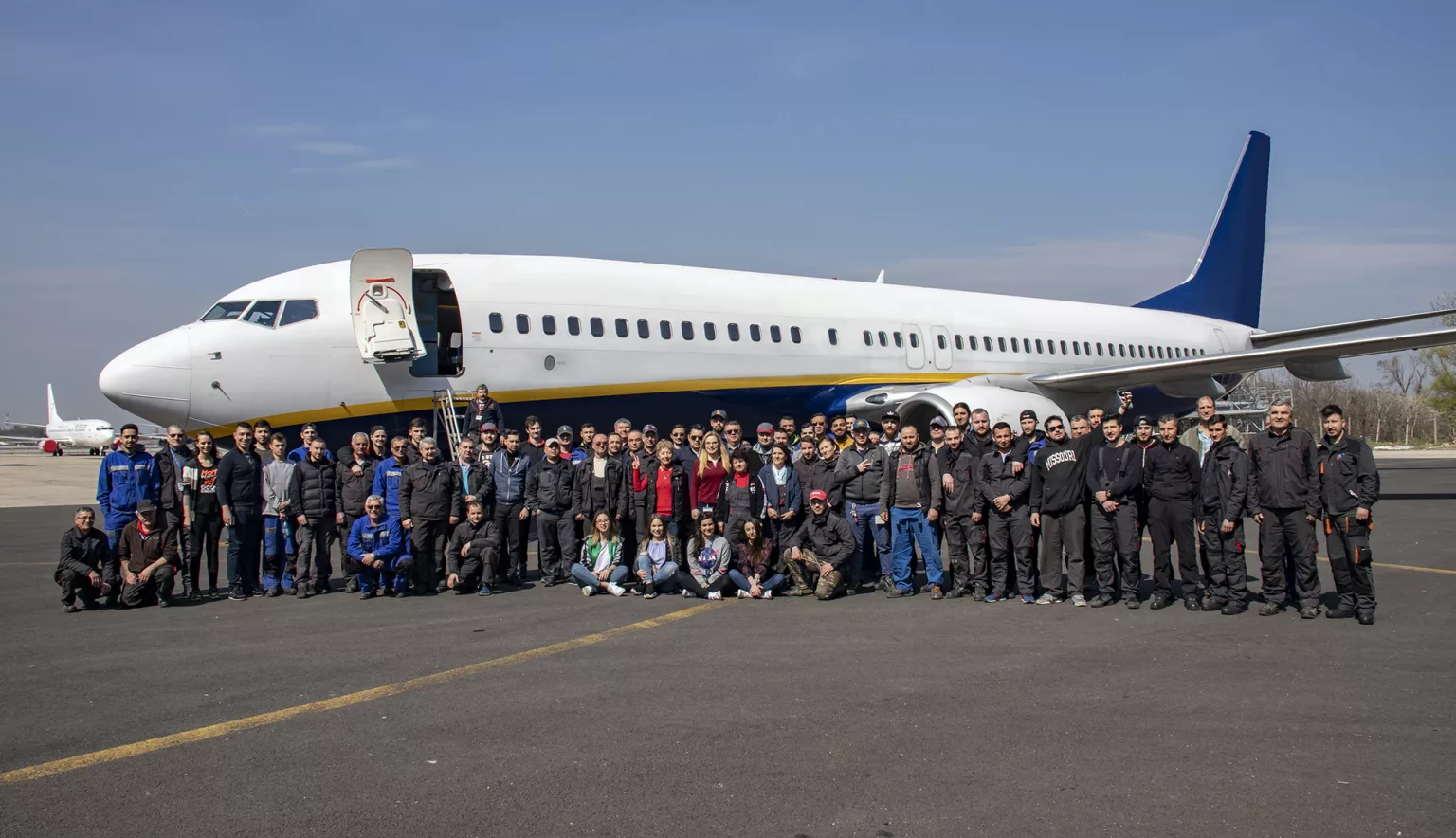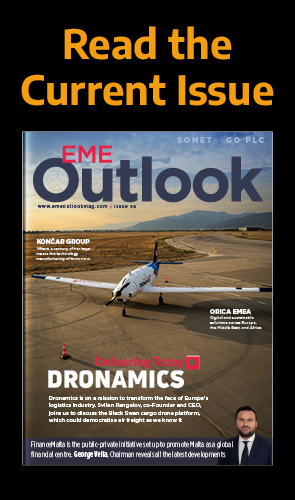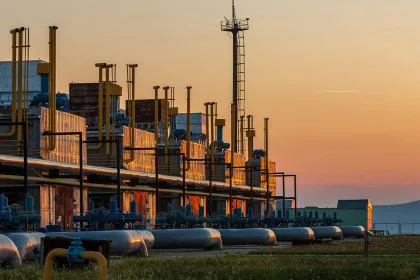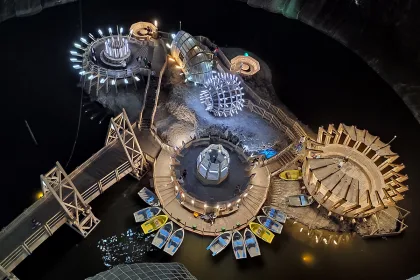Romania, a pioneer of aviation, boasts an impressive history in the industry. Here, we speak with Silviu Grecu, CEO of ROMAERO, to explore more about the organisation and its operations.
TRANSFORMATIVE AVIATION
Romania and aviation go hand in hand.
The country enjoys a rich history in aviation which goes back to the beginning of the 20th century. Indeed, pioneers such as Henri Coanda, Aurel Vlaicu, Traian Vuia and George Valentin Bibescu all made vital contributions to early aviation history and subsequently built revolutionary aeroplanes while contributing to the global scene.
Fast forward to today and ROMAERO stands as the largest state-owned aerospace and defence company in Romania. ROMAERO encompasses three different lines of business, each with its own specificities in terms of operations, customers, and development strategies. The firm has a large maintenance facility where it performs base maintenance for commercial operators on B737 and A320 family narrow-body aircraft while having the privilege of working for some of the most influential airlines in Europe.
“That history has created the right environment, culture, and infrastructure necessary for the sustainable development of the industry,” Silviu Grecu, CEO of the company, tells us. “It is well-known that after the change in the political climate, in 1990, the transition period did not favour any industry growth. Over the last couple of years though, we have seen a revitalisation as Romania starts gaining points in the global market share.
“If you ask me about excitement, let me just say that managing a company like ours doesn’t leave room for any dull moment. Dealing with the effects of the pandemic, on top of our day-to-day efforts in trying to implement a turnaround strategy, has proven to be pretty challenging.”
In defence, ROMAERO is the national service centre for the Romanian Air Force transport fleet, while having a long-standing relationship with the MOD, providing maintenance and support for the C-130, C27J and AN26/30 aircraft. In addition, within its industrial manufacturing division, ROMAERO manufactures various aerostructures with the capability to perform complex operations and produce anything from detailed parts to major assemblies, including composite materials.
In his role, Grecu is renowned as a forward-thinking, resourceful manager who is experienced in building and leading successful teams, developing and implementing effective strategy and overseeing business operations. Having graduated as an aerospace engineer, he believes his family had a major influence on his career path.
“My father worked in the same field and although I didn’t choose to embrace the technical side of the profession, engineering helped me gain the curiosity to wonder and the skill to figure out how everything works,” he explains. “This has proved to be a very valuable asset in management. I’ve since been in aerospace for 10 years now working for the same company.”
ROMAERO’s CEO believes that one of the company’s key competitive advantages is its location as a capital city of an EU and NATO member country, which means access to infrastructure, a large talent pool, and all the benefits for exporting EU manufactured goods and providing services under European Union Aviation Safety Agency (EASA) regulations.
“Romania remains one of the European countries with lower labour costs and although we perform highly specialised work, that means we can keep our rates lower than most of our competitors,” explains Grecu. “Secondly, one of our main differentiators is the variety of our capabilities. We are an all-inclusive supplier and a one-stop-shop for aerospace manufacturing.”
Having just celebrated its centenary, ROMAERO is an enterprise primed for the future. The company follows the market trends and is seeking to adjust its development strategy accordingly. As such, Grecu explains that the firm is working on various distinct levels.
“On the manufacturing side, we are focusing on further developing the composite materials capabilities and alongside research projects take on commercial contracts, such as UAV component manufacturing,” he tells us.
Following the lifting of the COVID-19 pandemic flight restrictions, ROMAERO is resuming the civil aircraft maintenance services and is making plans to expand these facilities. The company is preparing for significant investments in the facilities and human resource training in order to accommodate the requirements of its partners, the Romanian Air Force.
“In terms of aircraft services, we have a long-term project that is close to materialising, the establishment of a Black Hawk regional maintenance centre,” says Grecu. “As you can imagine, market repositioning is not an easy process and it implies a significant change in the organisational culture, but we try to get everyone on board for finding our best lane.”
“We are an all-inclusive supplier, one-stop-shop for aerospace manufacturing”
Silviu Grecu, CEO, ROMAERO
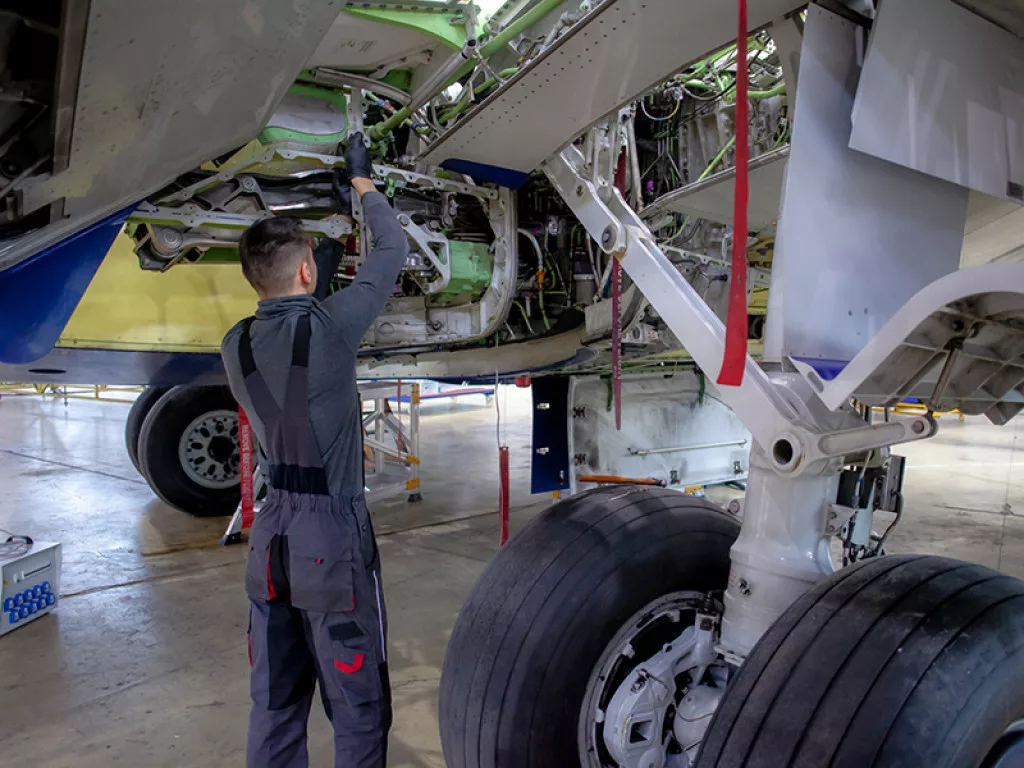
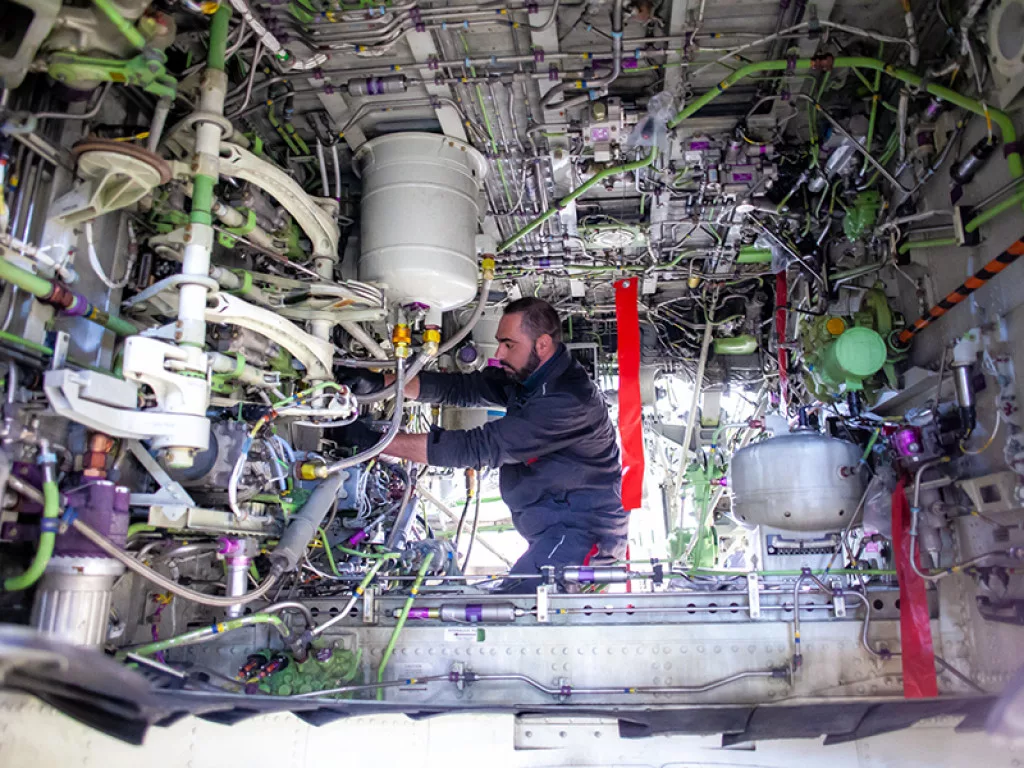
The importance of developing a robust supply chain is essential to long-term success in the industry. As a result, forming sustainable partnerships is key, particularly with influential collaborations that are mutually beneficial.
“Our supply chain expands globally as is the nature of the business,” says the executive. “Over our years of activity in the field, we managed to secure some good partnerships that have supported us through challenging times and with whom we are happy to share our success. In aerospace, we are obliged to fit into certain parameters, that’s what is expected from us and what we expect from all our partners.”
Operating with a 100 percent Romanian employee base, supporting the local community is a vital priority to ROMAERO and to Grecu himself. He is clear about what sets his company apart from others in the field.
“Being located in Bucharest represents for us an important advantage as we have the specific schooling infrastructure close and, as the capital city, Bucharest is the place you come from all over the country to study and build your career,” the CEO explains. “With the new generation of employees, recruitment is not the challenge, but retention. Being regarded as a learning hub, it’s easy to attract young professionals keen on developing their skills. How do you keep them from leaving to work abroad after they learn, that’s the strategy we’re focusing on. The effects of the pandemic had a huge impact on our retention rates and as we are looking to recover from that, we are rethinking our personnel policy, adapting our culture, and the benefits we offer, to what the new generation of employees is looking for.”
“With the new generation of employees, recruitment is not the challenge, but retention”
Silviu Grecu, CEO, ROMAERO
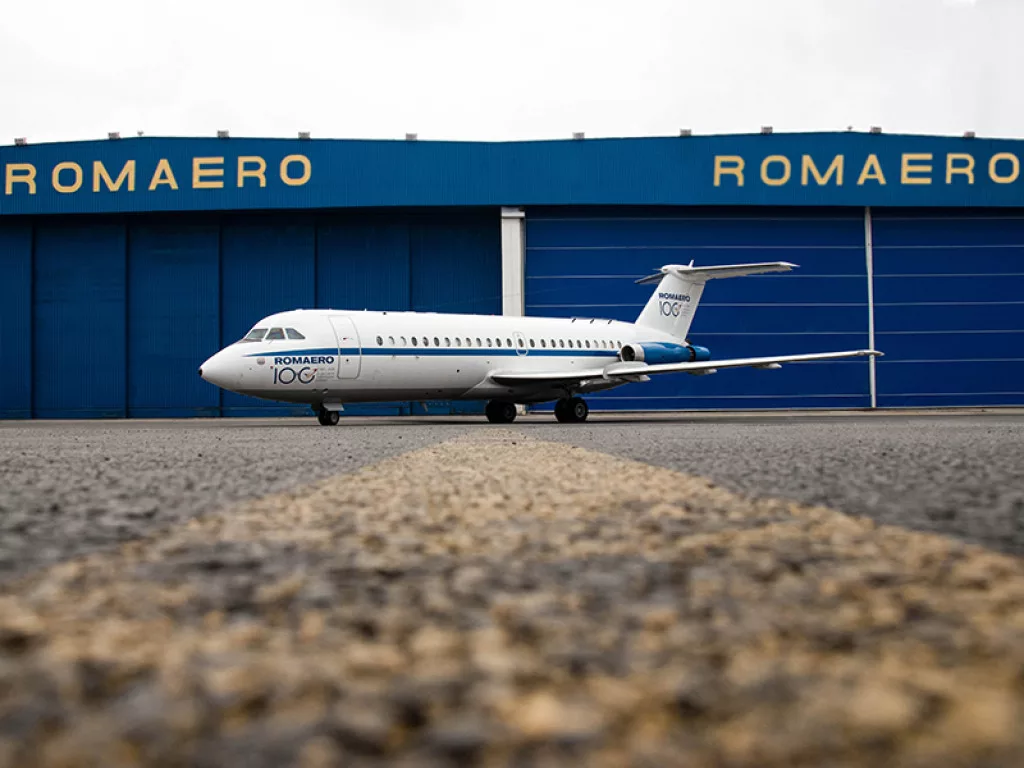
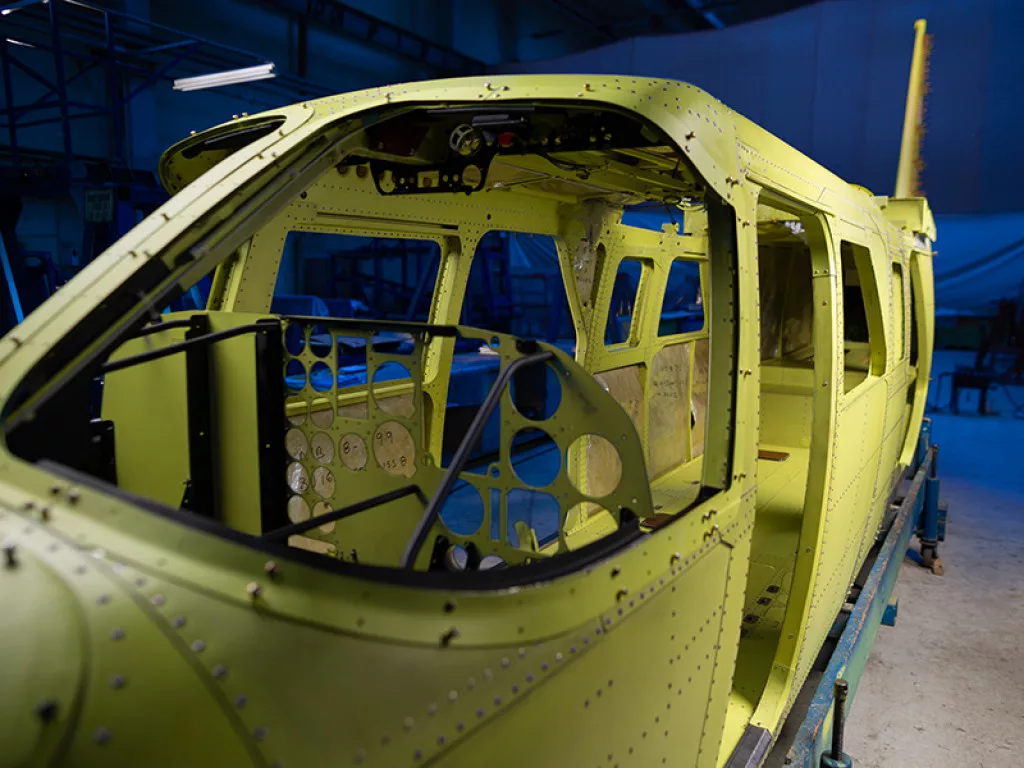
Indeed, education is a key pillar of ROMAERO’s strategy. The company believes in an equal chance for all children to learn and become whatever they set their mind to. As such, ROMAERO has worked closely with NGOs for the development of projects.
“We try to directly be involved in the life of the community by opening our doors for school trips where we give children of all ages a sneak peek behind the scenes and help them discover their love for aviation,” discusses Grecu. “The feedback has been encouraging so far but we’re going to have to wait for a couple more years to see if they will choose to join our team. We are aware of the times we live in and of the fact that our industry is part of the problem, so we are exploring all means to become greener. It’s a project that we are embracing, and we hope to be reporting significant results in recycling and reducing our energy consumption in the years ahead.”
Moving forward, ROMAERO’s CEO believes that 2022 could be a sliding-doors moment for the company’s future. “My management plan is focused on creating strategy and implementing an extensive turnaround process,” he sums up. “We have expansion plans for some of our capabilities but before putting them in place, we are conducting an extensive analysis and research operation, both internally and externally. We have started an operational restructuring process focusing on redesigning the processes, lowering costs, and setting up the basis to split and manage the three lines of business as profit centres.”
